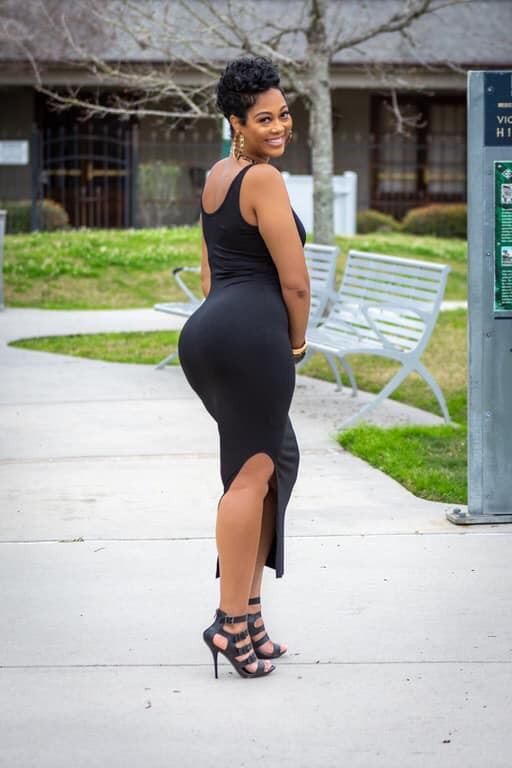The True Events That Inspired Regina King’s One Night in Miami
By
Nick Allen
Cassius Clay, Malcolm X, Sam Cooke, and Jim Brown really did meet up in a Florida motel in 1964. Here’s what we know about that historic night and the events surrounding it. Photo: Courtesy of Amazon Studios
Regina King’s One Night in Miami revolves around a constellation of Black talent that appeared at the Hampton House Motel in Overtown, Florida, on February 25, 1964. Here were four exceptional minds, each of them having already made history and eager to see where they would go next: a 22-year-old Cassius Clay (played by Eli Goree), before the boxer changed his name to Muhammad Ali and just after he beat Sonny Liston to become the heavyweight champion; Malcolm X (Kingsley Ben-Adir), a year before his death; singer and songwriter Sam Cooke (Leslie Odom Jr.), less than a year before his death; and NFL superstar and actor Jim Brown (Aldis Hodge), before the premiere of his first film. Today, we seem to know more about the FBI surveillance efforts that occurred around this historic night than what was actually discussed, but the ambiguity of the real-life event has proven a storytelling opportunity. King’s film, based on the 85-minute, one-room play by Kemp Powers, toys with the possible subject matter, imagining conversations about identity, integrity, social responsibility and more were on the table.
Powers (who wrote the film adaptation, too) has summed up
One Night in Miami as “
a work of fiction powered by the truth.” And so the most unbelievable parts of this movie are true — yes, these four modern legends really did hang out for one night in Miami, and yes, they really did bond over vanilla ice cream. But in telling the story, King and Powers stir up the timeline of events surrounding the hotel gathering, leaving certain historical references unexamined and taking artistic liberties with others. Here are a few of those historical references that made their way into
One Night in Miami:
Subscribers: Meet (the new) Curbed editors Feb 2nd
RSVP NOW
Muhammad Ali’s Underwater Photoshoot
Eli Goree as Cassius Clay (left) and the real Cassius Clay (right). Photo-Illustration: Amazon Studios and Stanley Weston/Getty Images
The film’s title appears over the recreation of an iconic image — Muhammad Ali in a swimming pool, poised like he’s in the ring and ready to strike. It’s a throwback to
a famously real set of images captured by photographer Flip Schulke in 1961, who documented the then-19-year-old boxer in Miami. Ali and his trainer told Schulke that this was a common way for the boxer to resistance train. But Schulke found out this was a lie three years later, writing in his 2003 book
Witness to Our Times: “[Ali] didn’t even know how to swim … he fooled everybody — but it made fantastic pictures.”
“Put Me Down Easy”
Leslie Odom Jr. as Sam Cooke (left) and the real Sam Cooke (right). Photo-Illustration: Amazon Studios and Jess Rand/Michael Ochs Archives/Getty Images
Before he gets to the party at Malcolm’s hotel room, Sam Cooke is shown in
One Night in Miami working on a new song on his guitar. The lines he plays would later become the actual song “
Put Me Down Easy,” which was written for Cooke’s younger brother, L.C. Cooke, and released by Cooke’s record company, SAR Records. Later in the film, Cooke boasts about a band on this same label, The Valentinos, who made big royalty bucks when Cooke allowed the Rolling Stones to cover their song “It’s All Over Now.” Discussions of Cooke’s business strategies become central to the conversation between the four characters in the movie.
Malcolm X, the Photographer
Kingsley Ben-Adir as Malcolm X (left) and the real Malcolm X (right). Photo-Illustration: Amazon Studios and Robert Parent/The LIFE Images Collection via Getty Images/Getty Images
Regina King’s film shows a side of Malcolm X we don’t often see — the side that enjoyed photography, as Ben-Adir’s character appears often with a camera in hand. The real Malcolm X was indeed known to carry around a still film camera, the King Regula 111c, and a Bell and Howell 70DR movie picture camera, an extension of his interest in creating positive images for the Nation of Islam. Photographer Gordon Parks famously described Malcolm’s approach to photography as “
collecting evidence,” especially as he traveled throughout the world. The final scene in
One Night in Miami, when Malcolm takes a picture of Ali from behind a bar, is inspired by
this photo that has Malcolm with a camera in hand.
The Debates
The film’s central debate between Cooke and Malcolm hinges on supposedly competing ideas of their duties as public figures. Malcolm suggests Cooke could be “the loudest voice of us all” if he chose to incorporate more political messaging into his work. The singer, however, claims he’s able to make an impact in a different way, securing economic freedom for Black artists by dominating the charts from behind the scenes — namely by writing pop songs that white artists perform. The debate is borne entirely of Powers’ imagination.
The writer told IndieWire that the
One Night in Miami conversations were inspired by thoughts Powers had when he realized he was the only person of color in the writers room for
Star Trek: Discovery. “How much of myself do I have to sacrifice to be accepted in this environment, in this world?” Powers contemplated. “My psyche was split down the middle. I put these arguments back into the mouths who inspired that way of thinking.”
Jim Brown’s Film Career
Aldis Hodge as Jim Brown (left) and the real Jim Brown (right). Photo-Illustration: Amazon Studios and Focus on Sport/Getty Images
The movie catches Jim Brown on the brink of a big career change, one that would turn the NFL fullback into an actor. His silver screen debut happened the same year as the events in King’s film, and the movie that Brown mentions, in which he plays a Buffalo soldier who gets killed halfway through, is
Rio Conchos. Brown would officially retire from football on the set of his next movie,
The Dirty Dozen, a moment seen at the very end of
One Night in Miami. His career as a lead and supporting character would include the Blaxploitation classic
Slaughter’s Big Rip-Off,
The Running Man,
Any Given Sunday, and many more.
Jackie Wilson, King of Sabotage
No, soul singer Jackie Wilson did not intentionally mess with the sound system during a Sam Cooke show in Boston, inspiring Cooke to lead his audience in an a cappella version of his 1962 hit “Chain Gang.” But the mischief from this flashback scene is inspired by a real knack by Wilson to playfully sabotage Cooke, as seen
in this video, in which Wilson interrupts Cooke trying to lip sync his song “Cha-Cha-Cha.” Speaking on
the Write On podcast, Powers explained that this emotional flashback was “a composite of several shows.”
“A Change Is Gonna Come”
The ending of the film has Cooke debuting a new song, “A Change Is Gonna Come,” on
The Tonight Show With Johnny Carson. That actually happened — Cooke performed the song exactly once on TV, and King’s movie recreates footage that has since been lost to time. But the context is askew. As Jack Hamilton points out in
a recent Slate piece about Cooke in the film, the movie falsely portrays Cooke’s pre-1964 songs “in order to make ‘Change’ seem like a bigger leap than it was.” Yes, “A Change Is Gonna Come” was influenced by “Blowin’ in the Wind,” but with songs like 1960’s “Chain Gang,” Cooke was already making socially conscious songs that reached well beyond simpler pop standards. A night like February 25, 1964 wouldn’t have been an epiphany for Cooke, but perhaps an affirmation.
Muhammad Ali’s Separation From Malcolm X
By the end of
One Night in Miami, Cassius Clay chooses to go by the name Cassius X, a nod to his Muslim friend and mentor, Malcolm X. But the movie’s final images show not Cassius X but Muhammad Ali being accepted by the Nation of Islam. In real life, Malcolm X left the Nation several days after the Florida gathering, following Muhammad Ali’s decision to choose the leader Elijah Muhammad over Malcolm as his mentor. In Ali’s 2004 autobiography
The Soul of a Butterfly, the boxer expressed his regrets about how the relationship ended, calling it “one of the mistakes that I regret most in my life. I wish I had been able to tell Malcolm I was sorry, that he was right about so many things. But he was killed before I got the chance.”











